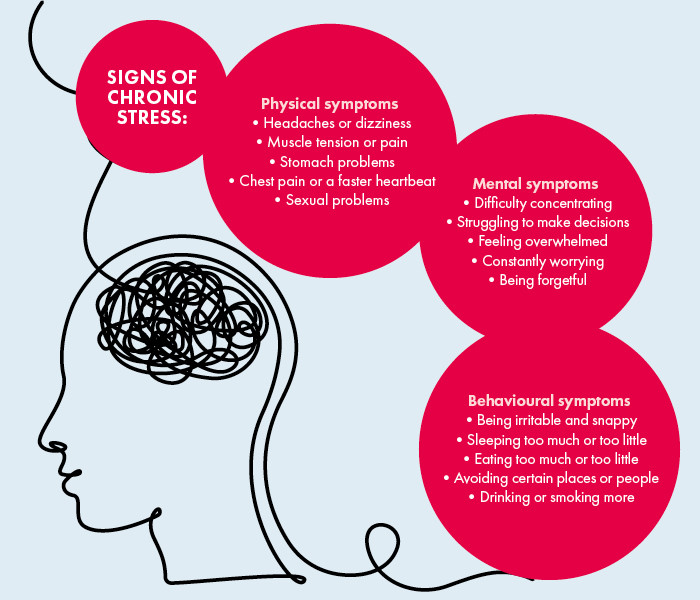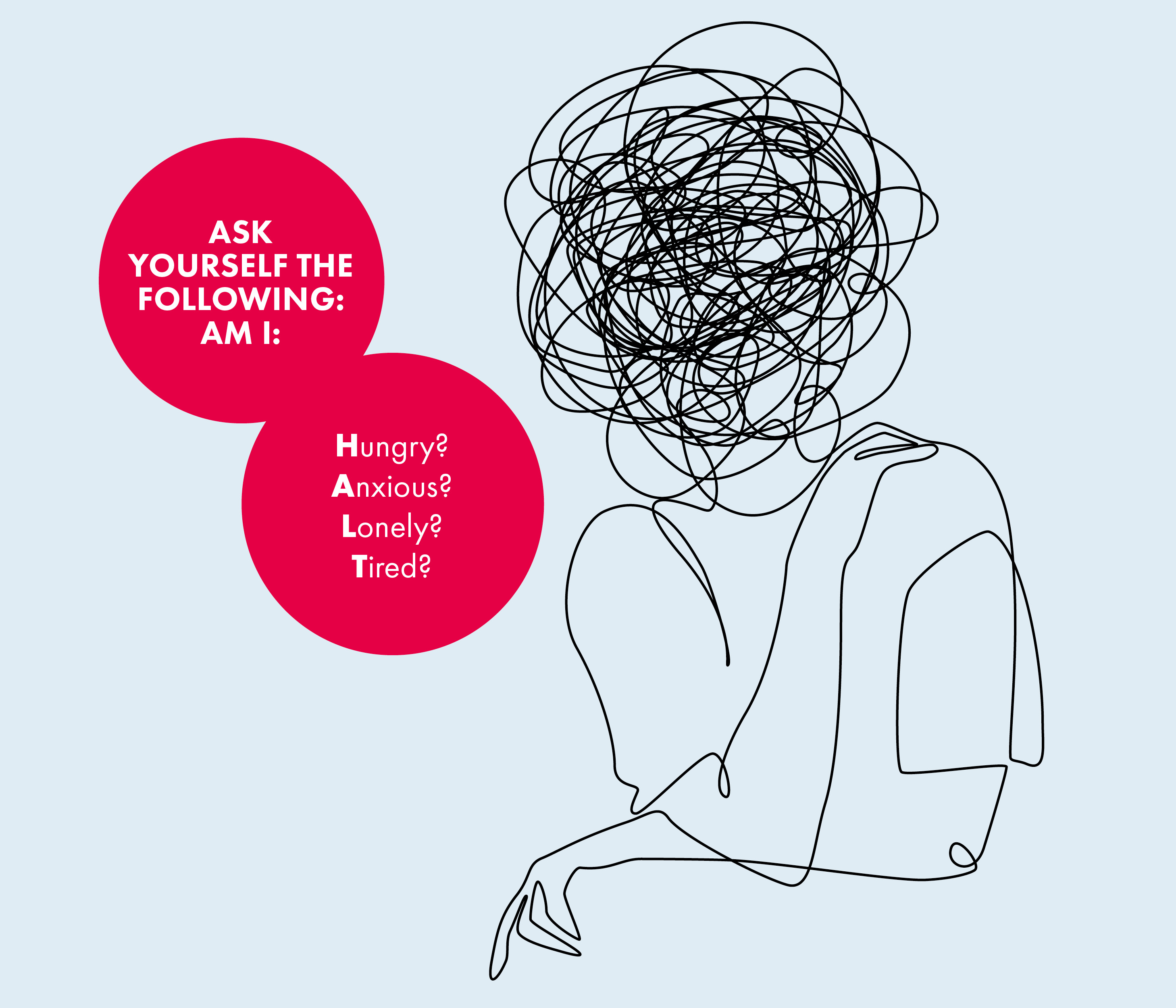
Not all stress is bad for us, but when it is negative, there are ways to combat its effects, says Merly Kammerling, writing ahead of World Mental Heath Day on Thursday 10th October.
Stress is a forever-occurring part of the love-hate relationship we have when working in hospitality. The reactive, fast-paced and demanding nature of working behind bars places intense demands on individuals.
The following factors (to name a few) can increase our stress levels:
• Extensive working hours
• Late nights • High-performance expectations
• Toxic workplace cultures
• Unclear or conflicting job demands
• ‘Boreout’ – profound and continuous work demotivation experienced in the form of boredom and underachievement
Take any of the list above and combine it with our own set of personal adversities and this can have a compounding effect on our stress levels, overall wellbeing and satisfaction with life.
Bad stress vs good stress
Stress is our psychological perception of pressure and the body's response to it. It is the body’s natural defence against predators and danger and causes the body to flood with hormones that prepare its systems to avoid or confront risk. People commonly refer to this as the fight-or-flight-or-freeze response. Humans are designed for short-term (acute) stress, we are not designed for long-term (chronic) stress with no active opportunities for crucial factors such as rest, enjoyment or disconnect from responsibilities or demands such as work and relationships. Chronic stress is a slippery slope towards burnout and mental disorders such as anxiety and depression.
On one end of the spectrum you have distress (bad stress), which involves a negative experience and a level of physical, psychological and emotional suffering. Thoughts, environments and experiences that make you feel worried, nervous, angry, sad, anxious, grief, frustrated or out of your depth create distress. At the other end is eustress (also defined as ‘beneficial stress’ or ‘good stress’). Eustress tends to be short term and often feels exciting and challenging. People perceive eustress to be manageable and motivating as it feels rewarding. Eustress is what encourages you to step outside of your comfort zone, learn a new skill or try a new activity.
It’s impossible to avoid all stressful situations and some are unavoidable, such as the loss of a loved one, redundancy or needing to work extra hours to pay rent. But it’s important to bear in mind that the bigger the demand on us the more time we need to replenish. In the same way that a marathon runner needs more recovery than somebody who has walked around the park. Understanding and actioning this is how we increase our ability to manage and cope, also known as building ‘resilience’.
Here are some tips to help you start addressing your stress:
The Wheel of Life
The Wheel of Life is a coaching tool that enables us to improve our lives by identifying areas that require work. If you’d like to explore your own wheel then here’s how…
Create your own circle and divide it into the primary areas of focus in your life. You may use the example headings as shown on the image or use your own.
Rank your stress levels in each area of the circle from 0 to 10 (10 being the most stress you could experience and 0 being not stressed at all). Reflect on the following:
• What specific areas in my life stress me out the most?
• Which areas of my wheel bring my life the most meaning and joy?
• Am I focusing enough on the areas of my life that are most important to me?
• What one or two small but realistic actions could I take to reduce my current stress levels?

Creating small and realistic actions to reduce your stress can have a ripple effect on other areas of your life. For example, if you started making more time to rest or do something that you enjoy, it may very well have a positive impact on your relationships, your motivation and your health.
How are you doing?
Reducing stress levels starts with self-awareness and practising regularly checking in with yourself.
The HALT technique is a useful self-awareness tool to prompt exploring why you are distressed and finding a suitable solution.
Need something to reduce your stress levels in the moment?
During a busy shift, there may not be many options to help reduce your stress. However, your breath is the quickest and most powerful tool that you can use in the moment when everything else feels like it’s going wrong around you. When we are stressed, the body automatically takes shorter breaths, which only worsens how we feel mentally and physically.
When we take longer breaths, consciously making the outbreath longer than the in-breath, this reduces our heart rate which in turn calms our mind and body. Focus your attention on these long breaths and notice how it reduces the tension in your mind and body.
Actively seek more eustress and rest in your life
Some of you may be reading this and wondering: “Why would I want to invite more stress into my life?” Well, the answer is that adequate eustress and rest are the antidote to distress – without them your wellbeing suffers.
Eustress has a significantly positive correlation with life satisfaction and hope and, unlike distress, eustress is about challenging yourself without pushing your energy and emotions too far.
Ways to increase your levels of eustress:
Exercise
While distress can lead to negative feelings, physical activity can significantly reduce our perception of our distress and increase levels of eustress.
• Practise pushing yourself outside of your comfort zone and learn something new.
• Set goals that are challenging and realistic for you to achieve. Small wins create self-fulfilment and confidence.
Remember that recovery is paramount to our functioning, not a luxury. Don’t believe the hype that more work and less rest equate to greater success. Like anything we do continuously in life, we can fatigue from it and the same goes for eustress, it needs to be balanced with adequate rest and recovery.
The unfortunate truth is that if we don’t reduce our stress levels and make time for fundamental needs such as rest, recovery, enjoyment and connection then we will be forced to pay attention through physical illness, burnout or mental disorders such as anxiety or depression.
There is not one perfect solution for all and reducing your stress levels will most probably be a process of trial and error. But any effort towards reducing stress levels and working on your mental health is one of the most valuable things you can achieve.
» Merly Kammerling is an integrative therapist and mental-wellbeing-in-theworkplace trainer. Contact her @wellandbeinglondon and wellandbeing.co.uk for in-person training and 1-2-1 therapeutic support for hospitality teams.


